
The Free Press

Robby Starbuck, a right-wing activist who loves to troll the left, lives on a 12-acre farm in Tennessee, about four hours from the area that Hurricane Helene ravaged last week. After the storm hit southern Appalachia, a friend told him that hurricane victims were struggling to connect with the outside world.
“So many people were worried that their family members might have died and they couldn’t get in touch,” Starbuck told The Free Press. The hurricane has been the worst since Katrina in 2005, with 230 deaths so far, and damages estimated between $30 billion and $47 billion. There were people trapped in flooded homes—or whose homes had been destroyed by the hurricane—and had no way of communicating with anyone who might be able to rescue them. They needed help.
So Starbuck told two of his employees in Tennessee to drop everything, head to nearby Home Depots, and buy every Starlink receiver the stores had.
Starlink is part of Elon Musk’s SpaceX, and the small panels, which retail for about $300 each, allow people to connect to the internet via the 6,000-plus satellites that SpaceX rockets have launched into space over the years. It takes only 20 to 30 minutes to set them up, after which users can access Starlink’s Wi-Fi via phone or laptop. It’s currently being used in Gaza, in Ukraine—where it has played a critical role for the army in Ukraine’s war against Russia—and most of South America, among other places.
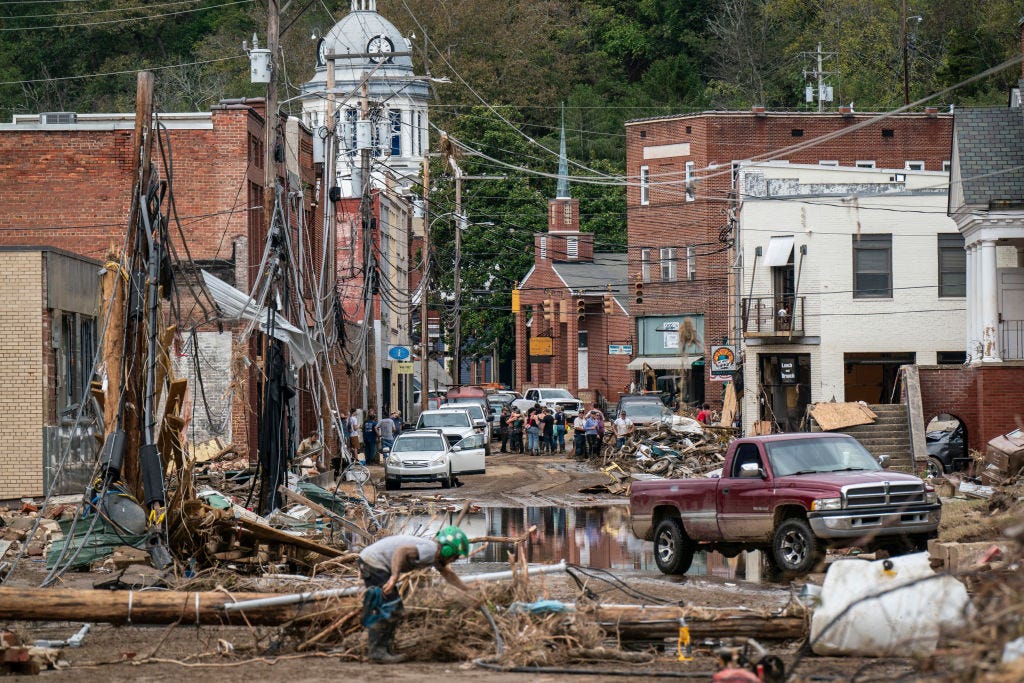
With a handful of receivers in hand, the Starbuck team got the police and fire departments in Johnson County, Tennessee, back online—including their 911 emergency service. “They hadn’t had power in three days,” said Starbuck.
When Starbuck found out that 100 Starlink receivers ordered by the Tennessee Emergency Management Agency hadn’t yet arrived, he sent a direct message on X to Elon Musk, who had his team rush dozens more receivers to the area. He also made a list of badly needed supplies, like work gloves, mops, tents, and shovels, which he posted on X; within 24 hours, his followers were sending supplies to east Tennessee.
Starbuck wasn’t the only one who stepped in. Countless others have stepped into the breach, including Isaiah Burch, a helicopter pilot who flew bottled water and diapers to North Carolina; Tracy Roberts, a South Carolina realtor who coordinated 15 planes and ten copters; and Republican state representative Jeremy Faison, who used his pest control office in Newport, Tennessee, as a central point of contact for people sending aid.
But while all these people raced to help the victims of Hurricane Helene, where was the federal government?
According to the Federal Emergency Management Agency, the government had more than 6,400 people on the ground in the affected states, helping “thousands of Hurricane Helene survivors jumpstart their recoveries with more than $110 million in federal assistance.”
But if you ask people like Starbuck and Faison, FEMA was not only failing residents—it was actively hindering those trying to help. “The way the Biden administration has used FEMA to stop things shows all they’re worried about is praise and glory,” Faison told The Free Press. “It’s disgusting.”
FEMA’s issue is that a great deal of coordination is needed to make sure, for instance, that a helicopter does not crash into a drone, or that there is proper coordination among its alphabet soup of helpers.
But the disgruntled Samaritans had no patience for the federal effort. As they posted their complaints on X, Elon Musk spread the word to his 200 million followers. He posted a text from a SpaceX engineer installing Starlink receivers in Asheville, North Carolina, that read: FEMA is actively blocking shipments and seizing goods and services locally and locking them away to state they are their own. It’s very real and scary how much they have taken control to stop people helping.
Musk also complained that the government was preventing private helicopters from landing. Transportation Secretary Pete Buttigieg took to X to deny it, tweeting: “If you’re encountering a problem, give me a call.” Musk then got in touch with Buttigieg, which appears to have led to a resolution of the issue. “Thanks for expediting approval of supply flights,” Musk tweeted to Buttigieg. “Just want to note that Sec Buttigieg is on the ball.”
Which may have been the nicest thing Elon Musk has said about a government official since Joe Biden took office.
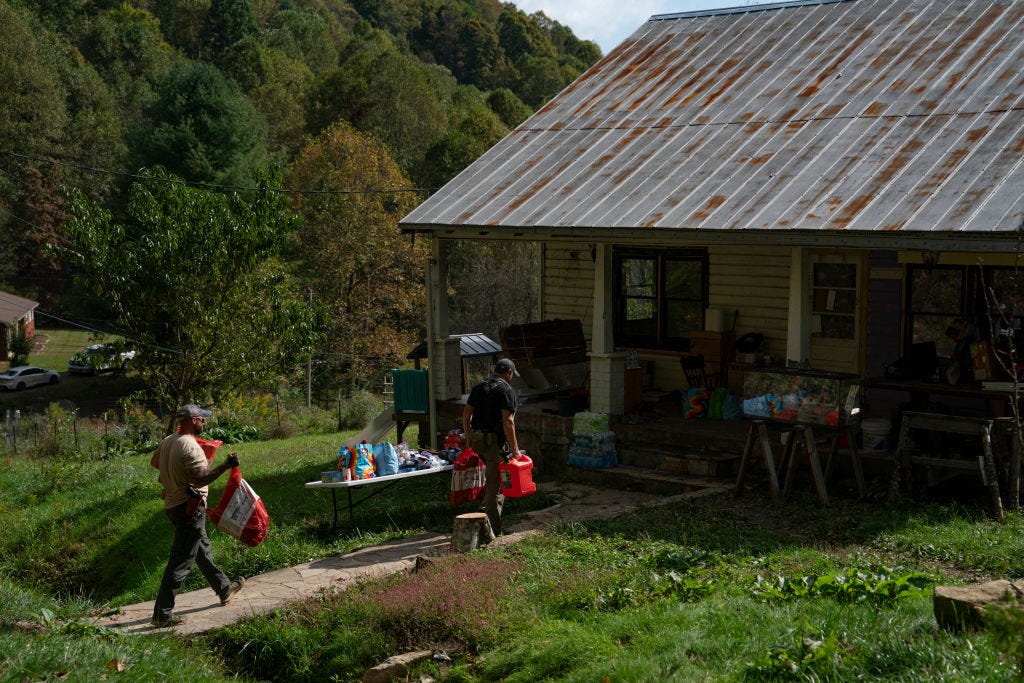
In 2022, the Federal Communications Commission made a shockingly bad decision: It rescinded an agreement to pay SpaceX $885.5 million to install Starlink receivers in rural towns across the country. Towns like Newport, Tennessee, and Chimney Rock, North Carolina, that were hit so hard by Hurricane Helene.
In reaffirming that decision last December, FCC chair Jessica Rosenworcel said in a statement that “this applicant had failed to meet its burden” needed to qualify for the money. At a conference last month, she added that with two-thirds of the satellites in space owned by SpaceX, its market share was too dominant. “We’ve got to invite many more space actors in,” she said.
In other words, even though Starlink was a proven technology that could alleviate a serious problem, rural America would have to wait until the FCC could rustle up some competitors.
FCC commissioner Brendan Carr wrote a scathing dissent, claiming that the ruling “certainly fits the Biden Administration’s pattern of regulatory harassment” of Musk and his companies. On late Monday afternoon, Representative James Comer, the chairman of the House Oversight and Accountability Committee, announced that he was opening an investigation into the FCC’s 2022 revocation of the Starlink deal. “The use of Starlink to repair and enhance connectivity in the devastating aftermath of Hurricane Helene suggests that Starlink can support rural communities recovering from natural disasters—and therefore in daily usage, too,” wrote Comer in a letter to Rosenworcel. “The FCC must ground its decision-making in law and not politics.”
Elon Musk has always had a knack for finding controversy. One example among many: Last year, Musk reposted an antisemitic tweet, which caused some advertisers to withdraw from X. Appearing at a New York Times event, Musk was asked what he would say to those advertisers. “Go fuck yourself,” he replied. (At that same appearance, he apologized for his tweet.)
Musk has also become a major thorn in the side of the Democrats, using X to promote Donald Trump—even appearing at Trump’s rally in Butler, Pennsylvania, on Sunday. In particular, he has promoted the theory that the Democrats created the border crisis to bring in migrants who will vote for Democrats, ensuring that the Democrats will never lose again. Yesterday, he appeared on Tucker Carlson’s show on X, saying if Trump loses, “I’m fucked. . . . How long do you think my prison sentence is going to be?”
But Carr, the FCC commissioner, has a point that’s hard to deny: The Biden administration sure seems to like putting the screws to Musk’s companies.
Carr listed seven federal agencies—including the Department of Justice, the National Labor Relations Board, and the Federal Trade Commission—that are investigating the CEO and his businesses. Two years after the fact, the Securities and Exchange Commission is still investigating Musk’s $44 billion purchase of X. Biden sought a provision in a bill that would have benefited electric-car makers that were unionized over companies like Tesla that were not. (It failed to pass.) In June 2022, when the president was asked about a negative statement Musk made about the economy, Biden replied, “Lots of luck on his trip to the moon.”
And yet, however much Joe Biden—and millions of other Democrats—might dislike Musk, can you name anyone since Steve Jobs who has done more for the country’s economy than him? The electric car industry didn’t exist until Musk became CEO of Tesla in 2008. Prior to SpaceX, founded in 2002, the U.S. depended on the Russians to go into space. Once the company began launching rockets, NASA turned to it instead. By now, SpaceX has successfully launched rockets into space well over 300 times across 14 years.
Indeed, after two astronauts were stranded on the International Space Station in June when their Boeing spaceship sprung several helium leaks, NASA had to turn to SpaceX as its only option to get them back to Earth. To be clear, a craft made by Boeing—formerly a U.S. aerospace gem—was deemed too dangerous to use. Late last month, SpaceX sent a rocket to the space station with two empty seats for the marooned astronauts. Their return flight is scheduled for February.
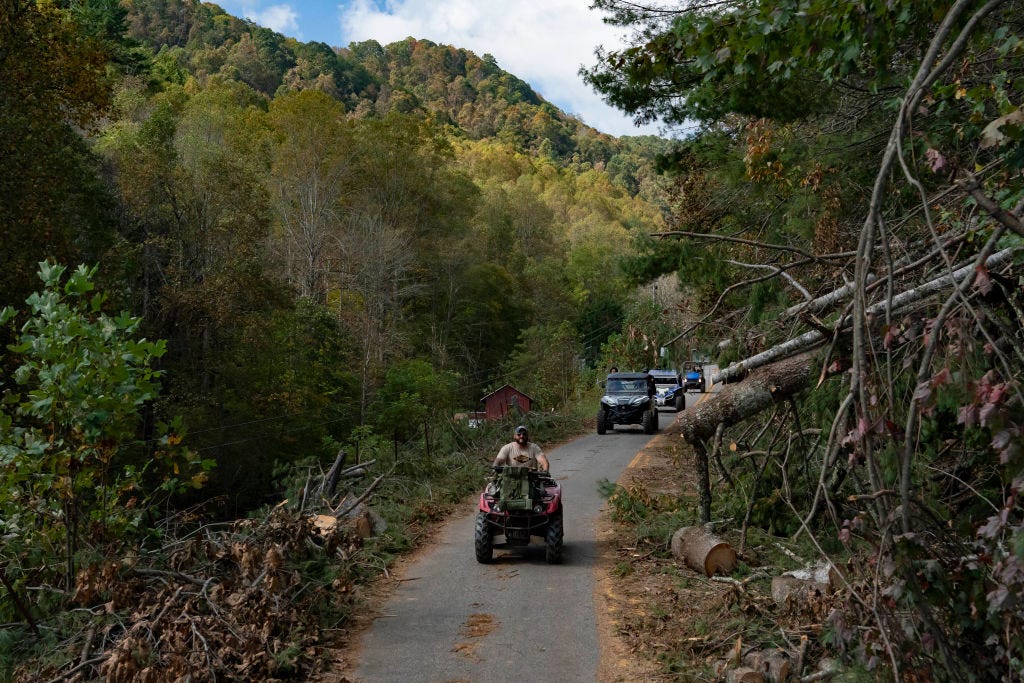
And then there’s Starlink. First made commercially available in 2021, the satellite-based Wi-Fi technology has made it possible for people all over the world to access high-speed internet, including rural Americans. Shortly after his inauguration in 2021, Biden announced that $65 billion in the infrastructure bill would go toward equipping rural areas with broadband internet by 2030. Musk beat him to it by nine years—by launching satellites instead of digging fiber-optic cable lines underground.
The Free Press spoke to four people about the government’s response to Hurricane Helene who said that FEMA’s performance was not as dismal as the right has portrayed it. “There’s a lot of sensational stuff from people who don’t live here,” said an independent journalist named Taylor Cramer, who is covering rescue efforts in western North Carolina. But “the people who live on the mountain,” he said, don’t agree with the criticisms. “I saw FEMA in Pensacola, North Carolina. They’re doing search and rescue stuff. But they’re about a week late.”
Still, what is undeniable is that whenever there is a natural disaster, the government always moves more slowly than private individuals. Before a national disaster strikes, the government should clearly be working in advance to buy and build infrastructure that can save lives. On X, a SpaceX engineer named Mike Coryell said that the company had deployed over 1,000 Starlink receivers in North Carolina, but they had “received 8,500 more requests” just from the area he was working in. In the aftermath of the hurricane, the FCC gave SpaceX emergency authority to operate Starlink in the areas hit by the hurricane. But those areas needed that infrastructure before the disaster hit, not afterward.
It’s true that Elon Musk can be erratic and moody. He fires employees on a whim. He posts tweets without thinking about the consequences. He can be almost inhumanely demanding to employees.
But sometimes, it takes an erratic, moody, inhumanely demanding person to make things happen. And, time and again, Musk has made things happen—to the benefit of us all. Presidents can’t afford to turn their backs on people like Musk. They do so at their own—and the country’s—peril.
Joe Nocera is the deputy managing editor of The Free Press. You can follow him on X @opinion_joe. Madeleine Rowley is a reporter for The Free Press. Follow her on X @maddie_rowley_. For more on Elon Musk, read The Free Press’s 2022 investigation into the Twitter Files.
And to support more of our work, become a Free Press subscriber today:

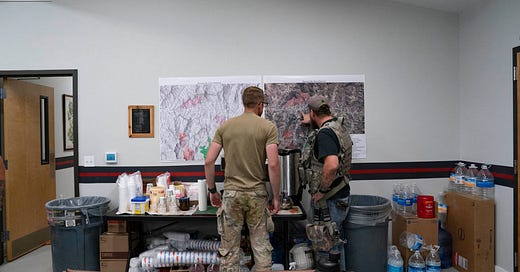



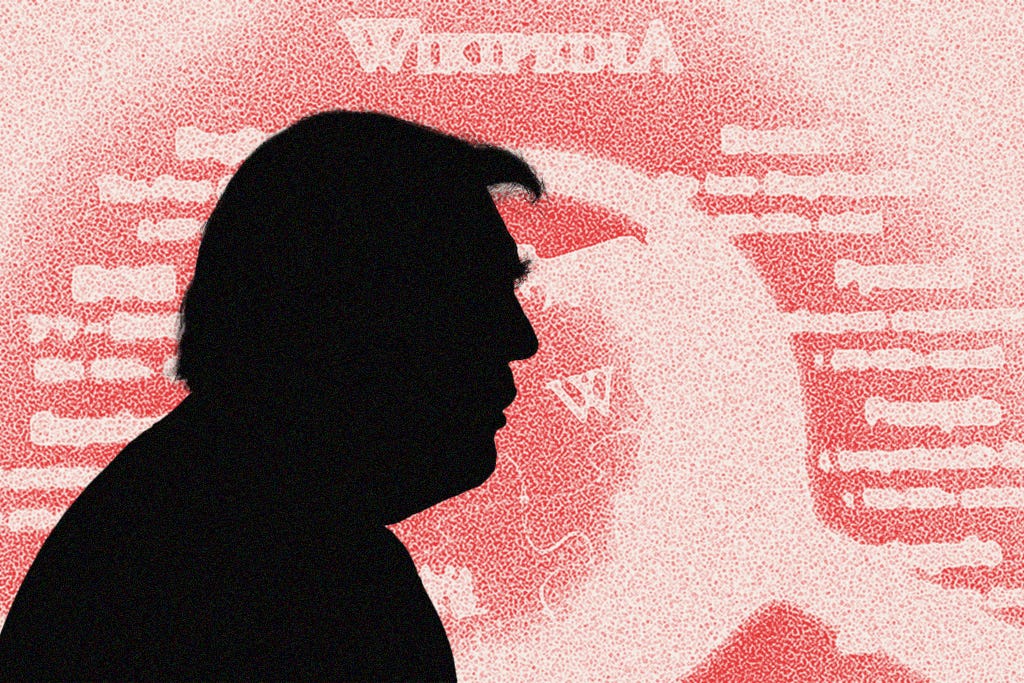



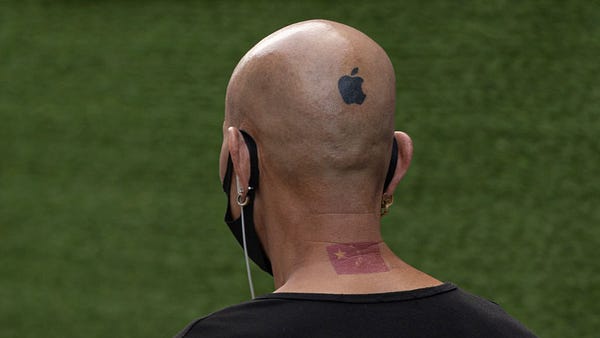

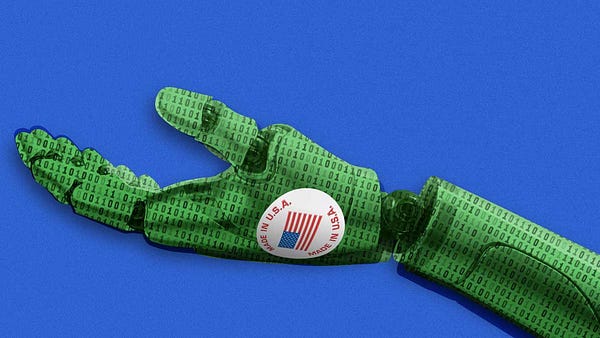



I live in the upstate of SC...not far from the devastation in western NC and eastern TN. Here's my take.
People outside of the area don't realize the magnitude of the damage. Also, everyone wanted to help.
The counties are rural, mountain areas. The damage wiped out lots of 2 lane roads and hundreds of bridges...yes, hundreds of bridges. Sure you can come in and cut up fallen trees in order to allow first responders to get into damaged areas, but what are you going to do when the 2 lane road you opened up as a one lane road encounters a bridge that has been wiped out...duh...everything stops. You can't rebuild a bridge in a few hours. I believe several things...1. FEMA, the state and private humanitarian groups need to be more proactive and coordinated in putting out to the general population what private citizens can and should do to help. Hey...there should be a plan. In this case there was no plan. 2.
The various groups (FEMA, the State and the private groups) need to tell people what they are doing.
Within 12 hours FEMA should have been able to publish what it is doing. Not 'word salads'...like real things...like 'we contracted with the following private companies in advance of the storm to do the following and they are now on site, etc' . Same for the state. Broadcast where the various centers for donations are located...like just outside the devastation so that private people would not hinder relief efforts. Theses took too long to happen. FEMA's public posts stated that they had 1,000 people available out of 20,000 on their payroll, but they were not specific regarding what they were doing. 'Assisting relief efforts' is a word salad. Now we're going to have to go thru this again with Milton.
However, I think the folks in Florida are better organized and they had more time to prepare.
just my 2 cents. Elon's response is just another example of the inability of FEMA to prepare and respond to storms.
Well, all true. That includes the part about what a total monster he is to his employees. Ask anyone who ever worked for Tesla.